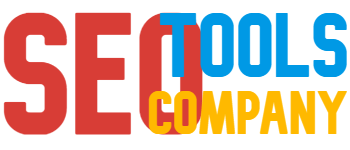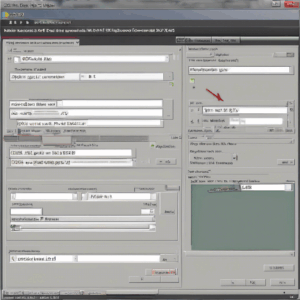Meta Tag Generator | Easy One-Click and Automatic Meta Tag Generator
Meta tags play a critical role in the landscape of search engine optimization (SEO). These snippets of HTML code serve as a bridge between your website and search engine bots, allowing them to comprehend and categorize your web pages effectively. Placed in the head section of an HTML document, they inform both search engines and potential visitors about essential details of your web content.
While there are various types of meta tags available, here are some of the most commonly utilized ones:
1. Title Tag:
The title tag is arguably the most critical among the meta tags. It serves as the title of your web page and is prominently displayed as the headline on search engine results pages (SERPs). A well-crafted title tag not only helps search engines understand the content of your page but also encourages users to click through to your site.
2. Description Tag:
The description tag provides a concise summary of your web page’s content. Displayed below the title tag on SERPs, this snippet can significantly influence click-through rates. When writing a meta description, aim for clarity, engagement, and relevant keywords.
3. Keyword Tag:
Although once a staple of SEO, this tag is now largely obsolete due to changes in search engine algorithms. The keyword tag provided a way to list relevant keywords for page content, but it is no longer used heavily by search engines to rank pages.
4. Robots Tag:
This tag is crucial for offering instructions to search engine crawlers. It determines how your content should be indexed and whether it should be displayed in search results. Implementing the robots tag incorrectly can lead to various SEO issues, so understanding its implications is vital for effective website management.
Through these tags, search engines gain insight into your web page, affecting its indexing and visibility in results. Properly utilized, meta tags can enhance your website’s appeal to potential visitors by improving the click-through rate from SERPs.
Meta tags are almost like the business card of your webpage—efficient, compact, and informative. They contain metadata that provides essential contextual information about your content. Crafting effective meta tags means using targeted keywords correctly, which improves your SEO.
Avoid overstuffing keywords, as this can lead to penalties for perceived spamming. Search engines utilize sophisticated algorithms to analyze the content, and practices like keyword stuffing can damage your site’s credibility and visibility over time.
Why Is a Meta Tag Generator Important?
Employing a meta tag generator tool is critical in the SEO toolkit. This tool can streamline the process of creating meta tags suited for your specific web content. Here are several reasons why you should consider using a Meta Tag Generator:
1. Ease of Use:
Meta tag generators are designed with user-friendliness in mind. You don’t need to be an expert in coding to create effective meta tags. Just fill in the required fields, and the tool generates all the necessary tags for you.
2. Informed SEO Decisions:
Using a generator allows you to clearly define your website’s categories, niches, and targeted keywords. This clarity helps search engines better index your site.
3. Enhanced Website Transparency:
The generator facilitates a transparent and responsive methodology for crafting meta keyword tags. This aids in optimizing your site’s discoverability.
4. Improved Click-Through Rates:
Well-structured meta tags result in attractive, informative entries on search engine results pages, likely leading to increased visitor engagement.
How to Use a Meta Tag Generator Tool
Utilizing a free meta tag generator can significantly simplify creating the necessary meta tags for your site. This tool has garnered accolades from webmasters for its utility. Here’s how to effectively use a Meta Tag Generator:
1. Input Key Phrases:
Begin by entering the crucial phrases that encapsulate your webpage’s content. Separate multiple phrases with commas for better organization.
2. Select Content Type:
Choose the content you wish to feature on your webpage. This could include a range of parameters like primary themes, niche details, and keywords.
3. Generate Meta Tags:
Hit the “Generate Meta Tags” button once you’ve filled out the required information.
4. Specify Content Language and Author:
If applicable, specify the language of the content and the author’s name to further enhance the metadata.
5. Captcha Verification:
To ensure the legitimacy of the request, complete the captcha verification.
6. Finalize Generation:
After clicking “Generate Meta Tags,” you will receive the complete set of meta tags, ready for incorporation into your HTML code.
Creating effective meta tags requires a balance of art and science. Here are some best practices to consider while crafting your meta tags:
– Keep It Concise:
For title tags, aim for around 50-60 characters. Meta descriptions should ideally be between 150-160 characters. This ensures that your tags are fully displayed in SERPs.
– Focus on Relevance:
Ensure that the title and description accurately reflect the page content. Misleading tags can increase bounce rates as visitors quickly leave if the content doesn’t match their expectations.
– Prioritize Keywords:
Incorporate relevant keywords naturally into your meta tags. However, avoid excessive repetition to maintain authenticity and quality.
– Use Action-Oriented Language:
Encourage user interaction with compelling phrases like Discover, Learn, or Get Started. This can enhance the likelihood of clicks.
– Regularly Update Tags:
Periodically review and update your tags to reflect any changes to your content or website goals. This ensures continued relevance, improving SEO performance.
Conclusion
A Meta Tag Generator streamlines the process of crafting effective meta tags, ultimately enhancing your website’s SEO performance and improving click-through rates on search engine results pages. By understanding the significance of each type of meta tag and employing best practices, you can effectively communicate the value of your web content to search engines and users alike.
In a rapidly evolving online landscape, the role of meta tags cannot be overstated. Using a powerful tool like a meta tag generator ensures that your web pages remain competitive and visible. As you continue to optimize your site, remember that well-written meta tags form the cornerstone of effective SEO strategy and user engagement.










